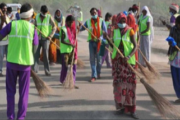“`html
Indian Government’s Measures to Help Skilled Workers Secure Jobs Abroad
Introduction
With India’s increasing overseas population, facilitating international employment opportunities has become crucial. Skilled professionals play a pivotal role in global industries, and the Indian government has implemented several measures to help them secure jobs abroad. According to Khabar India, India’s foreign-working population has grown from 18 million in 2020 to over 32 million today. With global industries demanding skilled labor, government efforts aim to bridge the gap and improve employability.
Key Government Initiatives for Global Employment
The Indian government has launched numerous schemes to train and support individuals seeking international employment. Some key initiatives include:
- Pravasi Kaushal Vikas Yojana (PKVY): Designed to enhance the employability skills of Indian workers for overseas jobs.
- National Skill Development Corporation (NSDC): Facilitates skill development programs aligned with international employment standards.
- Migration Support Centres (MSCs): Assist individuals with job placements, legal documentation, and settlement services abroad.
- Bilateral Agreements: India has partnered with countries to facilitate smoother work visa processes and employment opportunities.
Industry Demand for Skilled Professionals
Reports from the World Economic Forum indicate a rising demand for skilled workers in multiple sectors:
- Healthcare: Surge in demand for doctors, nurses, and medical technicians in Western nations.
- Technology & IT: Software development, cybersecurity, and artificial intelligence roles are growing globally.
- Engineering: Civil, mechanical, and electrical engineers are in high demand in Europe, the Middle East, and North America.
- Hospitality & Services: Demand for skilled personnel in the hospitality and service industry continues to rise.
Challenges Faced by Indian Workers Seeking Jobs Abroad
Despite opportunities, several challenges hinder the overseas employment process:
- Visa Restrictions: Many countries impose stringent work visa policies.
- Recognition of Qualifications: Not all educational qualifications and certifications are recognized internationally.
- Language Barriers: Proficiency in local languages can be an obstacle in non-English-speaking countries.
- High Cost of Migration: Relocation expenses and initial costs can be financially burdensome.
Government Solutions to Tackle These Challenges
To mitigate these challenges, the Indian government has introduced several measures:
- Recognition of Indian Certifications: Agreements with foreign governments to standardize certificate acceptance.
- Financial Assistance: Subsidized loans and migration cost support for workers.
- Language & Cultural Training: Programs to help workers adapt to foreign job markets.
How Can Job Seekers Benefit?
For Indian professionals looking to work abroad, here are actionable steps:
- Enroll in Skill Development Programs: Utilize government-backed training centers.
- Stay Updated on Visa Policies: Monitor embassy websites and official portals.
- Leverage Networking: Join global recruitment platforms and expatriate communities.
- Verify Job Offers: Use official government channels to authenticate overseas job opportunities.
Conclusion
The Indian government has taken proactive steps to support skilled workers in securing overseas employment opportunities. By enhancing training programs, forging international agreements, and providing financial assistance, these initiatives help individuals overcome migration challenges. Aspiring professionals must take advantage of these resources to successfully establish their global careers.
Key Takeaways
- The Indian overseas working population has grown significantly.
- Government programs such as PKVY and NSDC facilitate job placement abroad.
- High demand exists for skilled workers in healthcare, IT, engineering, and hospitality.
- Visa restrictions, qualification recognition, and migration costs remain major challenges.
- The government’s initiatives help ease these difficulties through training, financial support, and certification recognition.
For further details, visit Khabar India.
“`


